May #WritersRead Book Club Chat:
Thursday, May 28th @ 7pm EST
Join on Twitter!
While reading great books allows us to see how things are done well in the wild, reading books on craft forces us take an active step in our learning journey. This month, we took a deeper look at books on writing to learn from the experts themselves. Below you’ll find our full reviews from our picks this month, and a review from our month’s guest, fantasy fiction writer and the founder of Well-Storied.com, Kristen Kieffer. Join us later this week for book club on Twitter! (Details here).
Kristen’s Review
Intuitive Editing, by Tiffany Yates Martin
Though editing is my favorite part of the writing process, I’d be lying if I said it wasn’t a difficult and often overwhelming task. There’s simply nothing easy about transforming a messy first draft into a cohesive and compelling story, which is why I consider Tiffany Yates Martin’s Intuitive Editing to be an absolute gem of a writing resource. Throughout the book, Martin distills her more than 25 years of professional fiction editing experience into a series of core insights and actionable takeaways that writers can use to empower their self-editing process.
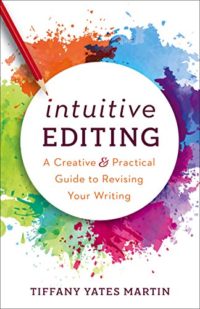
Early in Intuitive Editing, Martin encourages writers to read through their first drafts without critiquing their work. The purpose of this initial read-through is to see the forest for the trees; to gain a general impression of how well one’s captured their story on the page without getting bogged down by detail. From there, Martin recommends completing as many read-throughs and revision passes as necessary, addressing large-scale story issues like character arcs and stakes (i.e. macro-edits) before working in increasing detail to hone one’s story to high shine (i.e. micro-edits and line edits).
I recommend that writers take a similar approach when reading Intuitive Editing, using their first pass to gain a better understanding of strong storytelling and self-editing techniques before delving deeper into its pages to harness Martin’s many critical insights. With every chapter featuring “How to Find It” and “How to Fix It” sections, Martin empowers writers to address the issues in their manuscripts with confidence and focus. I intend to keep Intuitive Editing close at hand as I work to rewrite and revise Lady Legacy, my current work-in-progress, and I highly encourage any writers who want to level up their skills and stories to do the same.
Kristen Kieffer is a fantasy fiction writer and the founder of Well-Storied.com, a website dedicated to helping writers craft sensational novels and build their best writing lives. Her website is frequently voted among the top sites for writers. When not putting pen to paper, Kristen can be found stargazing, wanderlusting, and playing with her rescue dog, Aggie.
Rachel’s Review
Build Your Best Writing Life, by Kristen Kieffer
Build Your Best Writing Life is a must-read for any discouraged writer who feels like they aren’t reaching their writing goals. I chose this book for #WritersRead because I am that writer. Changes in my personal life have left my creative well dry, and left me feeling guilty and uninspired. Kristen Kieffer did not disappoint in giving me actionable and practical direction to re-energize my passion for writing and overcome productivity-guilt.
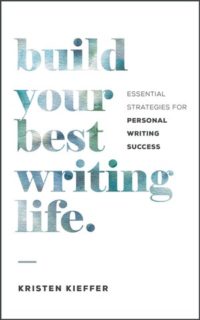
After exploring the root of an unsatisfactory writing life, Kieffer dives into how to cultivate a writing practice that serves me specifically. Her thoughtful activities at the end of each topic gave me a direction to explore what my best writing life looked like without prescribing answers to my personal situation. Next, she outlines tools for how to become a better writer and offers roadmaps for developing what a successful writing life means to me. I ended up highlighting more golden nuggets than probably any other writing resource I’ve read (seriously, you should see my notebook!).
The intentional angle of explanation and exploration allows BYBWL to be relevant to all writers, without feeling like this book outlines the “perfect” writing life I must adopt in order to succeed. It had the perfect balance of convicting “yep, that’s me” moments that opened my eyes to my writing weaknesses, and encouraging “ok, I can get back into my creativity” moments that inspired me. I highly recommend this pick for any writer who needs a jumpstart back into creativity as well as a guide to set your own writing goals.
Emily’s Review
Bird by Bird, by Anne Lamott
Bird by Bird by Anne Lamott is one of the most popular books on craft. Today I was listening to the podcast 88 Cups of Tea and the guest author, while listing her favorite books, said, “Well, everyone’s read Bird by Bird…” Until this month, I hadn’t. Now that I have, I honestly have to say I was a bit underwhelmed. My experience reading Bird by Bird was a little like the first time I read On Writing by Stephen King. I came in with super high expectations, and left feeling a bit chafed and depressed.
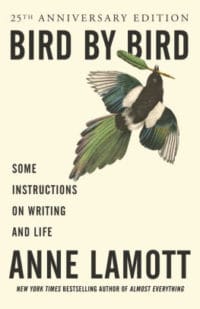
Writing is hard. That is a fact. But just because writing is hard doesn’t mean that it requires suffering. I cringe when authors insinuate that writing is this masochistic act, that you need to expect to hate writing and yourself in order to produce beautiful words. Creativity should fill you with life, not drain it out of you.
That said, Anne Lamott has woven some incredible gems of wisdom amongst her darkly humorous (and sometimes problematic) metaphors and tangents. I do appreciate how real she is about the struggle of writing. She is clear about how much determination and bravery it takes to show up to the page, and face your fears, every day. She tackles perfectionism and shitty first drafts with brilliance, and I really love how she insists you must have a reason for writing that has nothing to do with publication. I just wish she’d shown us a bit more of the light, joy, and happiness that writing can provide—because I don’t know about you, but that’s why I show up.
Join #WritersRead!
This year we’re hosting a book club just for writers! Each month you pick a book within the month’s theme, then we’ll meet for the #WritersRead book club chat on Twitter to discuss what you read and learned. Didn’t join this month? Hop on board for next month! You’ll find the calendar of themes and details for how to join here!


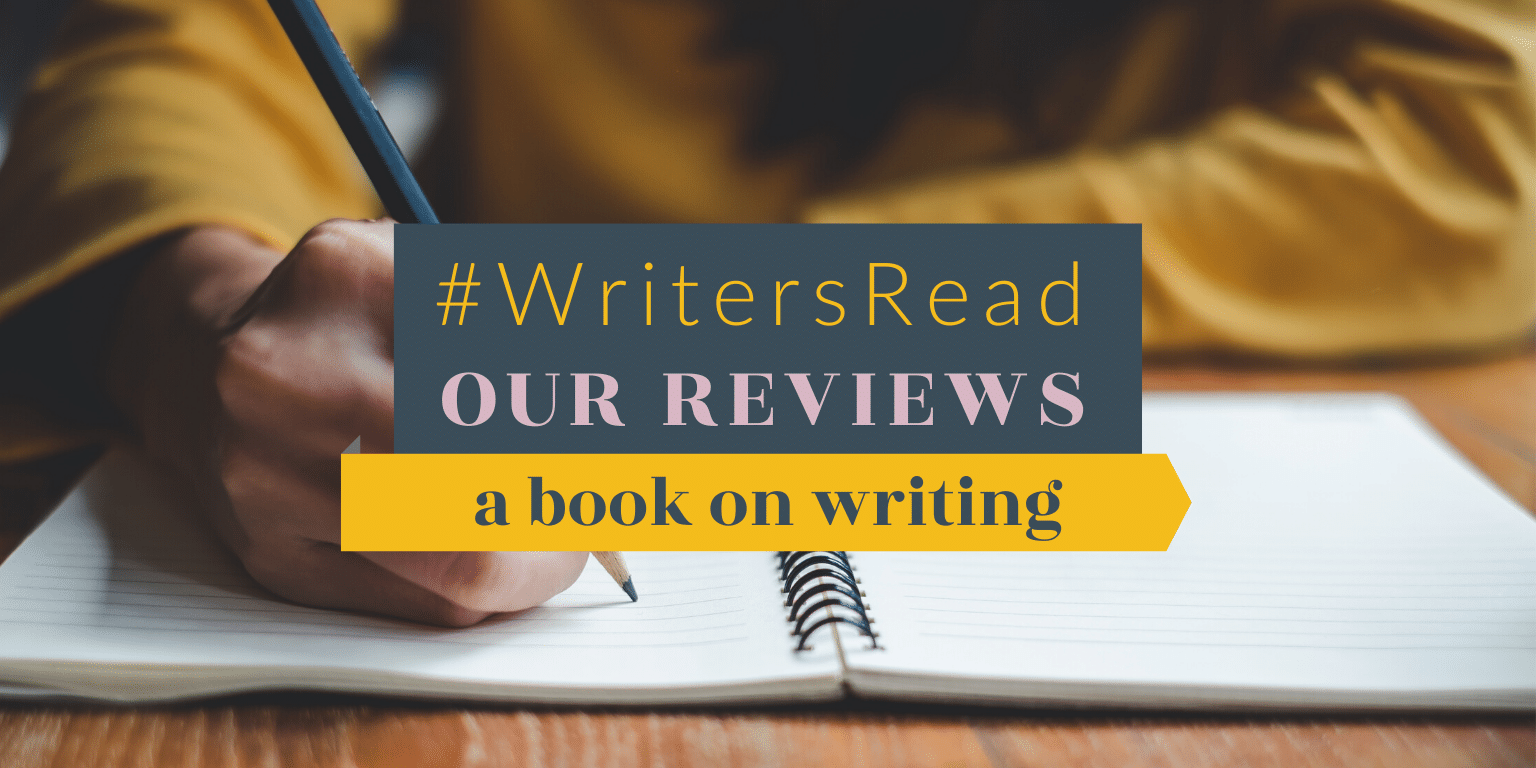

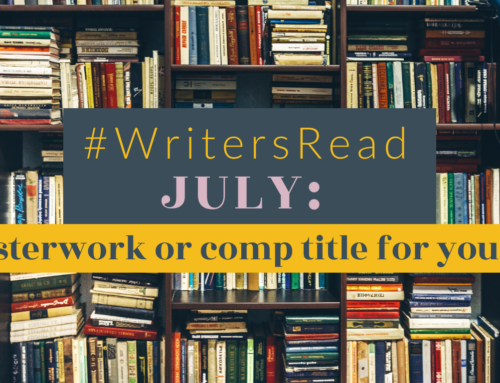
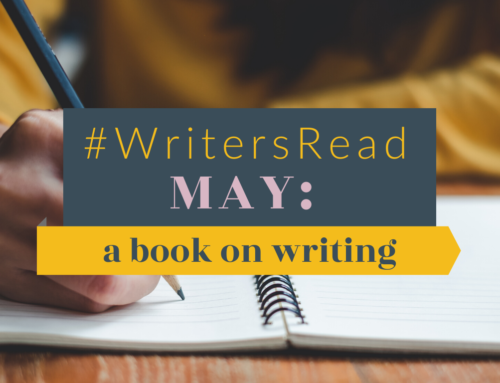
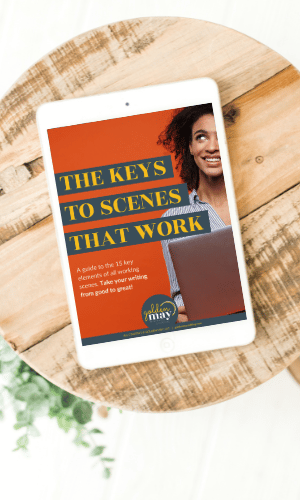
Thanks for the reviews. I’ve added these to my TBR list and will probably start with the editing book. I’m at the point where I enjoy revising my drafts but would definitely love to develop a stronger grasp of this process.
I didn’t read a writing book this month. I’m deep in drafting mode and didn’t feel I could handle the distraction. Intuitive Editing should prove a great resource for when I move on to the next stage, though. 🙂
Rachel, I can’t thank you enough for this lovely review of BYBWL. I’m so glad it could be a source of encouragement for you in your writing life! I’m right there with you in the trenches — especially during this pandemic. If you need me, I’ll be taking a strong dose of my own advice concerning resistance. *wink*
Also, Emily, I’m checking out “The Art of Slow Writing” ASAP. It sounds amazing. Thank you for the rec!
It’s so refreshing to know I’m not the only one underwhelmed by On Writing and Bird by Bird! I’m excited to check out “The Art of Slow Writing.” I was lucky enough to be a beta reader for “Build your Best Writing Life” and agree – it’s a fantastic reference! Looking forward to checking out “Intuitive Editing” now, too. Question… is there such a thing as too many books on writing?
Hello! This is @CatGV6 from Twitter.
Here’s my review of “The Ten Day Edit” by Lewis Jorstad.
This book completely changed my editing method–for the better! The steps of the challenge are thorough, engaging and relevant. His writing is honest but comforting, and when it comes to new concepts or methods, he takes us by the hand so we feel confident in doing the work. I discovered the reverse outline, which is definitely a tool I will use in my future editing, as well as the crucial scene timeline and other techniques, such as scene mapping. Moreover, the recap at the end of each chapter of what goals we completed for the day is motivating to read. Overall, this is such a useful book I’ll make sure to refer to during the editing of my novels. His methods are clear, precise, and enlightening. Kudos to The Ten Day Edit!